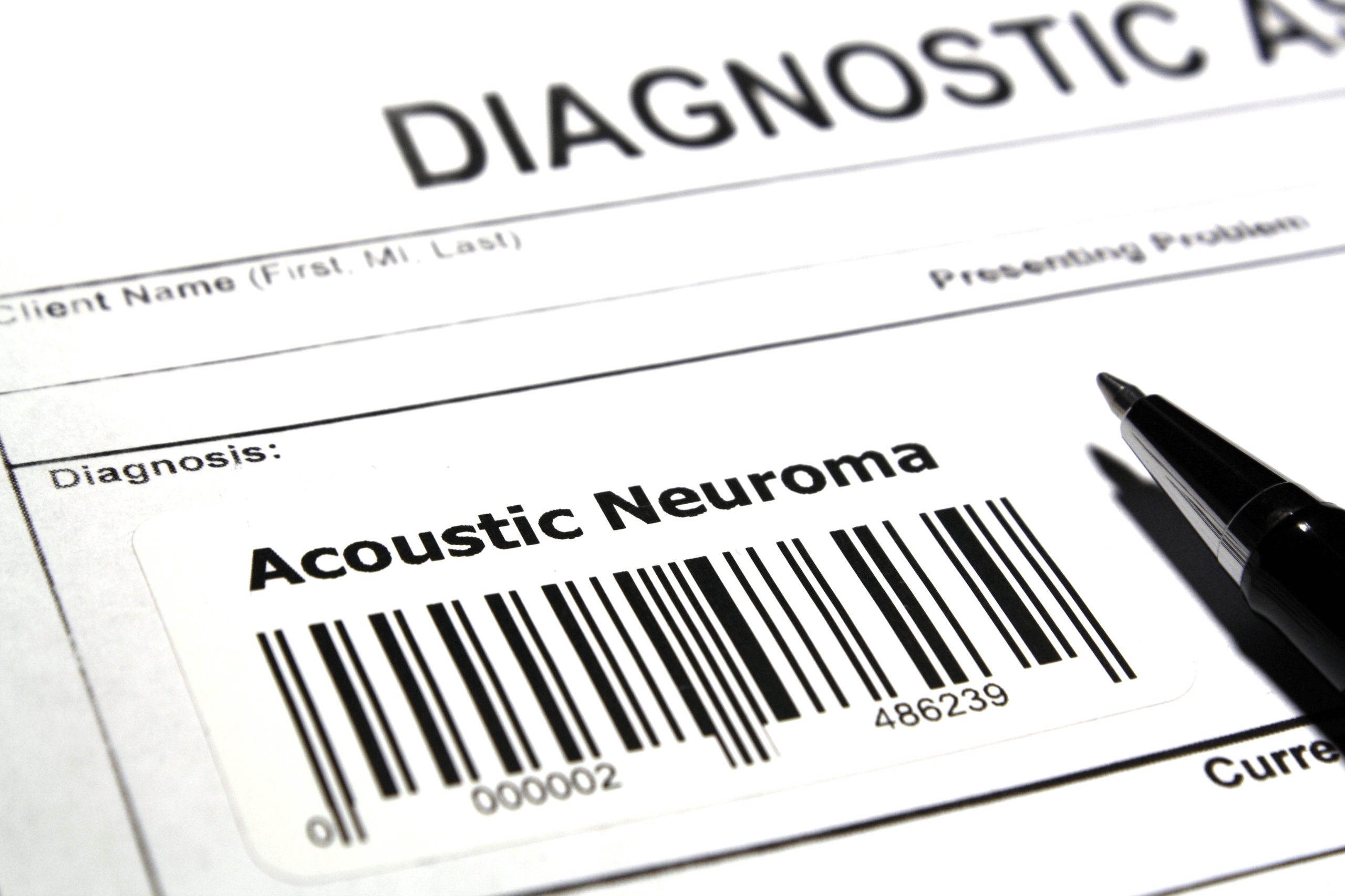Acoustic neuromas, also known as vestibular schwannomas, are slow-developing non-cancerous growths that arise along the auditory nerve, impacting hearing and balance. Their gradual onset often leads to delayed diagnosis due to overlapping symptoms with other ailments. Constituting roughly eight percent of intracranial tumors, these growths predominantly affect one ear with bilateral occurrences linked to a hereditary condition called neurofibromatosis type II. While traditional surgery is highly effective, there are other less invasive options available. Gamma Knife®️ treatment is a precise and highly effective treatment for acoustic neuromas.

Gamma Knife Treatment for Acoustic Neuromas
For individuals facing acoustic neuromas, radiation therapy offers hope. Gamma Knife is a minimally invasive stereotactic radiosurgery that provides surgical precision without extended hospital stays. Utilizing highly focused, high-dose radiation, Gamma Knife dismantles tumor cell DNA while sparing surrounding tissue. Patients can undergo this procedure while awake and often return home the same day, bypassing prolonged hospitalization.
Understanding the Symptoms of Acoustic Neuroma
The symptoms of an acoustic neuroma (vestibular schwannoma) vary, typically manifesting between ages 30 and 60. Initially subtle, they may include speech and swallowing difficulties, dizziness, headaches, hearing loss, and tinnitus. As the tumor progresses, it may lead to facial numbness, weakness, or even paralysis on the affected side, and in severe cases, it can compress the brainstem, causing hydrocephalus.
Side Effects and Recovery from Gamma Knife Surgery
One of the key benefits of Gamma Knife treatment is its low incidence of side effects. Facial weakness and numbness, occurring in less than one percent of cases, are rare, and the preservation of useful hearing surpasses that of other treatments, with an average of 71 percent of patients retaining hearing functionality. Recovery typically spans three to four months, allowing patients to gradually resume daily activities with renewed hope and improved health.
Patient Eligibility and Risk Assessment
Determining patient suitability to treat acoustic neuroma with Gamma Knife involves collaboration between the primary care provider, ENT or neurologist, and the medical team overseeing the procedure. While many patients view Gamma Knife surgery as their preferred treatment option for halting tumor growth, it can also serve as a follow-up to conventional surgical interventions or address tumor regrowth post-surgery, which occurs in approximately eight to ten percent of cases. Despite the treatment efficacy, potential risks such as post-treatment swelling, temporary hearing loss, cranial nerve damage, and fatigue warrant consideration and thorough risk assessment.
Evaluating the Effectiveness of Gamma Knife Treatment
When weighing treatment options for acoustic neuroma, efficacy is paramount. Gamma Knife treatment shines as the gold standard, boasting the highest effectiveness rate for preserving hearing among all available technologies. About 71 percent of patients retain useful hearing, and nearly half of all newly diagnosed acoustic neuroma cases are treated with Gamma Knife.
Beyond Gamma Knife Treatment and its Benefits
Beyond its efficacy in addressing the physical manifestations of acoustic neuroma, Gamma Knife treatment offers patients the prospect of a better quality of life. By preserving hearing and minimizing side effects, this innovative approach not only addresses the immediate medical concern but also alleviates the emotional and psychological burden often associated with debilitating conditions. Patients can regain a sense of control over their health and well-being, enabling them to focus on pursuing their passions and enjoying meaningful interactions with loved ones.
Embracing Hope and Innovation in Acoustic Neuroma Treatment
Gamma Knife treatment stands as a beacon of hope for individuals grappling with acoustic neuroma. Its minimally invasive nature, exceptional efficacy, and focus on preserving quality of life make it a preferred choice for many patients and healthcare providers alike. Ongoing research and innovation promise to further enhance the effectiveness and accessibility of Gamma Knife treatment, offering renewed hope and improved outcomes for individuals facing the challenges of acoustic neuroma.
Located at St. Joseph Medical Center in Tacoma, WA, South Sound Gamma Knife is the sole Gamma Knife center situated between Seattle, WA, and Portland, OR. It provides patients across the region with access to a uniquely tailored facility, cutting-edge technology, and an unmatched team of neurosurgeons, radiation oncologists, radiation physicists, nurses, and other experts.
For patients who have been diagnosed with acoustic neuroma, you can explore your treatment options, including Gamma Knife, by speaking with your primary provider. Or, call 1-866-254-3353 to learn more about our resources and services.
Phone
Fax
